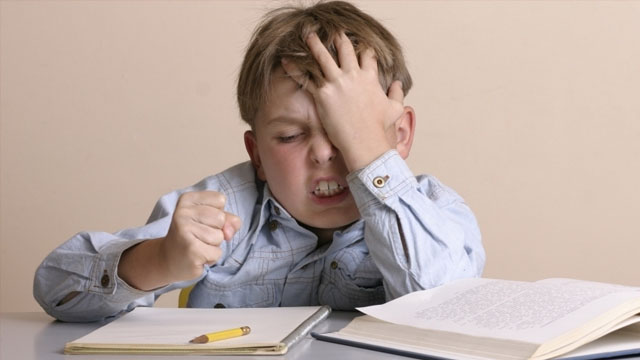Dr. Deepak Vyas talks about the Attention Deficit Hyperactivity Disorder in children and how to identify it.



Every child treasures his parents and loving and caring parents give them the feeling that they are special and irreplaceable. Parents provide children a sense of belonging and a unique identity. Parents are, or should be, a source of emotional support and comfort, warmth and nurturing, protection and security. This relationship provides children with a critical sense of being valued and with a vital network of historical linkages and social support. Within every healthy family there is a sense of reciprocity—a giving and taking of love and empathy.
While parents are always over protective about their children, whether it is their health or studies or friend’s circle because it’s is all apparent, sometimes there are changes happening with or around children that they fail to register. Like ADHD, which is the Attention Deficit Hyperactivity Disorder. It is most commonly found in the kids of 6 to 12 years of age group. Children suffering from ADHD are inattentive, hyperactive & impulsive. Most of the time ADHD child are academically underachievers or have behavioural problems. It is normal for children, at one time or another, to have trouble focusing and behaving. However, in children with ADHD, the symptoms continue instead of getting better, and they can make learning very difficult. For the confirmation of this disorder your child is taken through DSM IV criteria & direct supporting evidence from parents, caregivers & classroom teachers.
What is DSM-IV Criteria for ADHD?
- Criteria A & B
Criteria A: If six or more of the following symptoms of inattention have been present for at least 6 months to a point that is disruptive & inappropriate for developmental level.
Inattention:


In this case, a child-
1) Does not give close attention to details or makes careless mistakes in schoolwork or other activities. Gets distracted easily and becomes forgetful.
2) Does not pay attention or listens when spoken to directly.
4) Does not follow instructions & fails to finish schoolwork, chores, or duties given (not due to rebellious behaviour or failure in understand instructions).
5) Faces trouble in organizing activities.
6) Avoids, dislikes, or doesn’t want to do things that take a lot of mental effort for a long period of time such as schoolwork or homework.
7) Often loses things needed for tasks and activities (eg, toys, school assignments, pencils, books, or tools).
Criteria B: If six or more of the following symptoms of hyperactivity-impulsivity have been present for at least 6 months to an extent that is disruptive and inappropriate for developmental level.
Hyperactivity: ![14.[1]](https://www.youngisthan.in/userfiles/meenakshi_2/14.[1].jpg)
In this case, a child-
1) Often fidgets with hands or feet or squirms in seat.
2) Gets up from seat when remaining seated is expected.
3) Runs about or climbs when & where it is not appropriate (adolescents or adults may feel very restless).
4) Has trouble playing or enjoying leisure activities quietly.
5) Is often “on the go” or acts as if “driven by a motor.”
6) Talks excessively.
Impulsivity:


In this case, a child-
1) Often blurts out answers before questions have been finished.
2) Faces troubles waiting for one’s turn.
3) Interrupts or intrudes in other conversations (eg, butts into conversations or games).
- Some symptoms that cause impairment are present before 7 years of age.
- Some impairment from the symptoms are present in two or more settings (eg, at school/work and at home).
- There must be a clear evidence of significant impairment in social, school, or workThe symptoms do not appera only during the course of a Pervasive Developmental Disorder, Schizophrenia, or other Psychotic Disorder. The symptoms are not better accounted for by another mental disorder (eg, Mood Disorder, Anxiety Disorder, Dissociative Disorder, or a Personality Disorder).
If your child seems to be meeting with any of the above given criteria, it’s time to talk to your child’s doctor. If you or your doctor has concerns about ADHD, take your child to a specialist or a child psychologist or developmental pediatrician, or you can contact your local early intervention agency (for children under 3).





